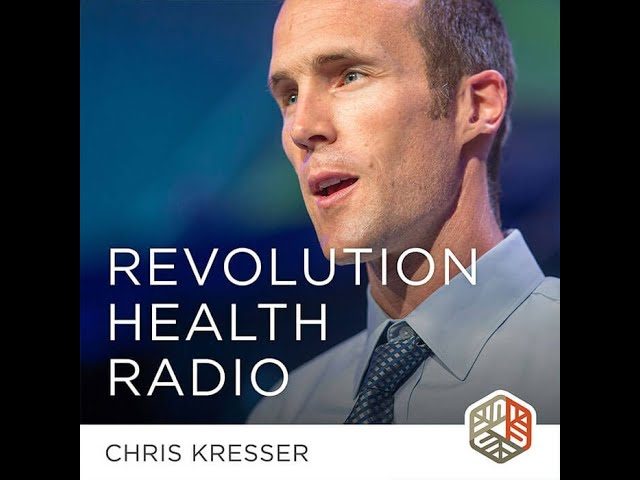
Debunking the Myth of Heart-Healthy Oils

Page Contents:
The conventional medical community has long promoted the idea that certain vegetable oils, also known as industrial seed oils, are “heart-healthy.” The idea that these oils, which include canola, corn, peanut, safflower, sunflower, and soybean oils, are heart-healthy vegetable oils is a myth. They are only a very recent addition to the human diet, and a growing body of research indicates that they are terrible for cardiovascular health. Read on to learn about the dangers “heart-healthy” vegetable oils pose to your cardiovascular system and which fats you should choose instead to support your long-term heart health.
Free eBook
The Diet-Heart Myth
Fifty-year-old science is hurting your heart. Find out how, and learn to prevent and reverse heart disease naturally through diet and lifestyle.
I hate spam too. Your email is safe with me. By signing up, you agree to our privacy policy.
Is Increasing Vegetable Oil Intake Smart for Your Heart?
In 2019, a comprehensive report released by the American Heart Association (AHA) indicated that nearly half (48 percent) of all American adults have some form of cardiovascular disease, including atherosclerosis, high blood pressure, and heart failure. (1) Many people are searching for information on how to eat to support their cardiovascular health. Unfortunately, the dietary advice provided by the mainstream medical community for cardiovascular health is seriously outdated. Perhaps the most misguided advice we receive is to eat more “heart-healthy” vegetable oils.
Vegetable oils are processed fats extracted from seeds, including:
- Corn
- Cottonseed
- Rapeseed/canola
- Soybeans
- Safflower
These oils, also known as “industrial seed oils,” are a very recent addition to the human diet, introduced with the advent of the modern food processing industry in the late 19th century. The total intake of soybean oil, one of the most prevalent vegetable oils in our food supply, increased a whopping 1,000-fold between 1909 and 1999 in the United States. (2) This rise in vegetable oil intake is due in part to the ubiquity of vegetable oils in processed foods, which make up the majority of the average American’s diet. However, we have also been actively encouraged to eat vegetable oils by medical authorities, including the AHA, the Harvard School of Public Health, and The Cleveland Clinic. Should we really be eating vegetable oils as a part of a heart-healthy diet?
Much of the dietary advice provided by the mainstream medical community for cardiovascular health is outdated, including the myth of “heart-healthy” vegetable oils. Check out this article from nutritionist Lindsay Christensen to find out more. #paleo #nutrition #wellness
The Sketchy History of Vegetable Oils and Heart Health
The campaign for increased consumption of “heart-healthy” vegetable oils is an extension of the “diet-heart hypothesis” first proposed by physiologist Ancel Keys in the 1950s. Based on low-quality research full of methodological flaws, Keys made the spurious conclusion that dietary saturated fat and cholesterol cause cardiovascular disease and should thus be avoided in the diet. Instead, he recommended that people replace dietary saturated fat with omega-6 fatty acid-rich vegetable oils, derived from cottonseed, corn, canola, safflower, and soybeans.
Interestingly, Keys’ recommendations aligned with the burgeoning oilseed industry, which was looking for a way to use up surplus oilseeds rich in omega-6 fatty acids, particularly cottonseed. The processing of cottonseed into a cooking oil provided a convenient and profitable way to make use of the agricultural surplus. A generous infusion of cash from Procter & Gamble, the makers of cottonseed oil-based Crisco, into the newly minted AHA in the 1940s subsequently led to the wholesale medical endorsement of vegetable oils as “heart-healthy.” The campaign of misinformation snowballed from there, leaving us with the warped advice to consume highly processed, industrialized vegetable oils.
Why You Should Be Skeptical about “Heart Healthy” Vegetable Oils
A quick look at the AHA’s website reveals that they still seem to think vegetable oils are beneficial for heart health. According to the AHA’s “Healthy Cooking Oils” webpage:
“Replacing bad fats (saturated and trans) with healthier fats (monounsaturated and polyunsaturated) is good for your heart. One way you can do this is by choosing healthier non-tropical vegetable oils for cooking and preparing food.” (3)
This recommendation is mainly based on evidence that vegetable oil consumption decreases low-density lipoprotein (LDL) cholesterol, frequently referred to as the “bad” type of cholesterol. However, we now understand that reducing LDL cholesterol does not necessarily translate into any meaningful, beneficial effects on cardiovascular health. Rather, the topic of LDL cholesterol appears to be far more nuanced.
While dietary saturated fat can increase the number of LDL particles in circulation, this is due to an increase in large, buoyant LDL particles rather than small, dense particles. Large, buoyant particles are much less likely to trigger cardiovascular disease than small, dense particles. Replacing saturated fat with polyunsaturated fatty acids from vegetable oils has demonstrated no significant benefits for cardiovascular health outcomes or total mortality. (4, 5) Furthermore, meta-analyses conducted within the past decade have found no beneficial effect of reducing dietary saturated fat and cholesterol on cardiovascular disease risk. In fact, several studies have found a possible protective relationship between dietary saturated fat intake and stroke! (6)
If the consumption of vegetable oils alters a marker no longer considered significant to overall cardiovascular health, then it would seem reasonable for medical authorities to change their recommendations around vegetable oil intake. Unfortunately, the groupthink around vegetable oils has remained largely unchanged in the medical community, with organizations such as the AHA continuing to recommend high intakes of vegetable oils and limited intake of saturated fat.
However, when we turn to the scientific literature, we see that there is a growing shadow descending over vegetable oils. Rather than being “heart-healthy” centerpieces of our diets, these oils may actually drive the cardiovascular disease process through several mechanisms, including exacerbating inflammation, increasing body fat stores, and displacing nutrient-dense whole foods in our diets.
If you have concerns about your health and you’re not sure where to turn for help, you’re not alone. Getting the information and support needed to cut through the noise and adopt a truly healthy lifestyle isn’t an easy task—but that’s why we created Adapt180 Health™. Adapt180 Health™ is a membership-based health transformation program that gives you the help and support you need to improve your heart health. Our members get access to their own health team—a practitioner, a nutritionist, a health coach, and fitness and mindfulness experts—along with virtual classes and workshops, guided challenges, and a supportive community. Find out how Adapt180 Health™ can help you get to the bottom of your health issues.
How Do Vegetable Oils Hurt Heart Health?
Chris has previously discussed the health problems posed by industrial seed oils in his article “How Industrial Seed Oils Are Making Us Sick.” Vegetable oils are novel foods that have only been a significant part of the human diet for the past 150 years, a blip in our evolutionary history. A growing body of research indicates that this is no coincidence and that vegetable oil consumption may uniquely drive cardiovascular disease, rather than prevent it, through several mechanisms, including:
- Promoting chronic inflammation
- Increasing adiposity
- Increasing trans fat intake
- Displacing nutrient-dense, cardioprotective foods in the diet
Vegetable Oils Drive Inflammation
Chronic inflammation is a well-established underlying cause of cardiovascular disease. (7) The Standard American Diet (SAD) is known to cause chronic inflammation. Vegetable oils may be one dietary component that significantly influences the inflammatory potential of the SAD.
Soybean oil appears to be one of the most inflammatory vegetable oils. In mice, a high intake of soybean oil is associated with elevations in several markers of inflammation, including fasting blood glucose, serum insulin, tumor necrosis factor alpha, interleukin-6, and C-reactive protein. It also contributes to significant weight gain. (8, 9) Each of these inflammatory biomarkers is an independent risk factor for cardiovascular disease. (10, 11, 12)
How do vegetable oils trigger inflammation? One mechanism pertains to the high omega-6 fatty acid content of these oils. A high intake of omega-6 fatty acids disrupts the body’s omega-6/omega-3 balance. Disruptions to this delicate fatty acid balance initiate inflammatory processes, including endothelial dysfunction, insulin resistance, and leptin resistance, critical elements in the development of cardiovascular disease. (13, 14) Interestingly, some individuals may experience a more robust inflammatory response to dietary linoleic acid than others based on their genetics. (15)
Vegetable oils also contain pro-inflammatory compounds produced as byproducts during oil processing and cooking. Omega-6 oxylipins, compounds produced when omega-6 fatty acids are oxidized by heat or light, promote inflammation in the body upon consumption. (16) Consumption of these compounds triggers a chain reaction of oxidative damage in the body that may eventually lead to LDL oxidation. Oxidized LDL plays a significant role in the pathogenesis of cardiovascular disease.
High Linoleic Acid Intakes Promote Body Fat Accumulation
Linoleic acid, the predominant fatty acid in vegetable oils, may also contribute to the pathogenesis of cardiovascular disease by making fat tissue more insulin-sensitive, causing it to take up more glucose from the blood. While this may sound like a good thing, it’s not. The glucose is then converted into triglycerides, the primary storage form of fat in the body. Over time, these processes contribute to increased fat stores. Increased body fat, particularly in visceral fat stores, is linked to an increased risk of cardiovascular disease. This phenomenon may explain why linoleic acid has been found to cause greater weight gain than saturated fat in animal models.
Vegetable Oils Contain Trans Fats
We’ve known for decades that man-made trans fats directly contribute to cardiovascular disease. (17) Hydrogenated fats are the most significant sources of trans fats in the diet; these fats are found in items such as margarine and fried foods. However, few people realize that vegetable oils also contain trans fatty acids, though inadvertently, as a byproduct of the refining process.
Two studies analyzed the fatty acid composition of vegetable oils. They found that 0.4 to 4.2 percent of the total fatty acid content in un-hydrogenated canola, corn, and soybean oil contains trans fatty acids. (18, 19) For every 2 percent increase in calories you consume from trans fats, your risk of heart disease is nearly doubled; this is yet another reason to avoid vegetable oils, even if they state that they are “un-hydrogenated.” (20)
Vegetable Oils Are Nutrient-Poor Foods
Vegetable oils are calorically dense but exceedingly nutrient-poor. The plants used to create vegetable oils are often nutrient-poor in the first place; however, the refining process removes any remaining nutrients. While some oilseeds, such as rapeseeds used to make canola oil, contain some naturally occurring vitamin E, most of the vitamin E is likely oxidized by heat and light exposure or removed entirely during processing.
Vegetable oils also do our hearts a disservice by displacing whole, nutrient-dense foods with demonstrable heart health benefits, including:
- Extra virgin olive oil (EVOO)
- Avocados
- Seafood
- Full-fat dairy
- Nuts and seeds
Are High-Oleic Vegetable Oils Heart-Healthy?
Part of the problem with vegetable oils is that they are very high in linoleic acid, an omega-6 fatty acid with a delicate chemical structure that is highly susceptible to heat and light damage. Oxidation of omega-6 fatty acids produces pro-inflammatory compounds that contribute to inflammation and disease in our bodies. The food industry has attempted to solve this problem by developing high-oleic vegetable oils.
High-oleic vegetable oils are vegetable oils where the ratio of monounsaturated fatty acids (MUFAs) to linoleic acid has been increased. MUFAs are more stable than linoleic acid and thus less susceptible to heat and light damage. MUFAs are also considered the most “heart-healthy” fatty acids. High-oleic vegetable oils have a longer shelf life and reduced tendency to go rancid. The high MUFA content is also a boon to the food industry, which can label these oils as “heart-healthy.” But are high-oleic oils truly heart-healthy?
High-oleic oils are made primarily from seeds, such as canola seeds and sunflower seeds. Most high-oleic oils were developed through strategic plant breeding. However, two types of soybeans have been genetically modified to create high-oleic soybean oil. (21) Based on the research, it is safe to say that high-oleic vegetable oils may not be as bad as their linoleic acid-rich vegetable oil predecessors; however, they are not genuinely healthy oils. For one, high-oleic oils are still heavily processed oils. Secondly, we can easily find monounsaturated fats in whole foods, such as EVOO, avocados, and macadamia nuts. These whole-food sources of MUFAs also contain a host of other beneficial compounds, including phytochemicals with antioxidant properties. High-oleic, mega-processed canola oil can’t hold a candle to these naturally high-oleic whole foods.
While some bloggers and food manufacturers claim that high-oleic sunflower oil is Paleo-friendly, I still recommend that you limit your consumption of these processed oils and focus on whole-food sources of healthy fats instead.
Five Heart-Healthy Oils to Eat Instead
Nature offers an abundance of truly heart-healthy fat sources. If you are interested in protecting your cardiovascular health, I recommend that you toss out the vegetable oils in your kitchen and focus on the following five fats instead.
1. EVOO
EVOO is a heart-healthy oil that has been a part of the human diet for millennia. It is rich in MUFAs and contains phytonutrients that promote healthy endothelial function, a critical determinant of cardiovascular health. (22)
2. Wild-Caught Seafood
On this, the conventional and ancestral health communities can agree: the omega-3 fatty acids in seafood offer powerful support for cardiovascular health. (23) I recommend that you refer to the SMASH acronym to remember which types of seafood are most abundant in omega-3 fatty acids and the lowest in mercury; SMASH stands for “salmon, mackerel, anchovies, sardines, and herring.” Importantly, it is whole seafood intake, but not necessarily omega-3 fatty acid supplementation, that appears to offer the most benefits for cardiovascular health.
3. Avocados and Avocado Oil
Like EVOO, avocados and avocado oil are rich in MUFAs. They increase high-density lipoprotein (HDL) cholesterol, lower triglycerides, improve glycemic control, and enhance the body’s antioxidant systems, which help prevent the oxidation of LDL cholesterol, a critical step in the pathogenesis of atherosclerosis. (24) If you choose to use avocado oil at home, make sure you purchase a high-quality brand, as many brands of avocado oil are adulterated with low-quality vegetable oils. (25)
4. Full-Fat Dairy Products
The nutrition community continues to debate the merits and perceived “dangers” of full-fat dairy intake. I am firmly in the camp that eating full-fat dairy products, particularly fermented full-fat dairy, offers unique benefits for cardiovascular health. Research shows that full-fat dairy consumption beneficially alters inflammatory markers related to cardiovascular function. Importantly, these benefits are not seen with low-fat dairy consumption. (26, 27) Try incorporating full-fat organic or grass-fed yogurt, kefir, cheeses, butter, and ghee into your diet to support your heart health.
5. Coconut Oil
In my clinical experience, unrefined coconut oil can absolutely be a part of a heart-healthy diet. In healthy individuals, it increases HDL cholesterol. (28) However, some people are genetically predisposed to experience increases in LDL cholesterol with high intakes of coconut oil, most notably those with the ApoE4 genotype. These individuals may be better off avoiding coconut oil and focusing more on whole-food sources of MUFAs, such as EVOO, and omega-3 fatty acids, such as seafood.
Vegetable oils continue to get a lot of attention for being “heart-healthy,” but research indicates they are anything but! Vegetable oils are novel additions to the human diet that provoke inflammation, increase body fat, and displace healthier foods in our diets—processes central to the development of cardiovascular disease. To truly support your heart health, focus instead on eating whole-food-based, nutrient-dense fats such as EVOO, wild-caught seafood, and fermented full-fat dairy products.






